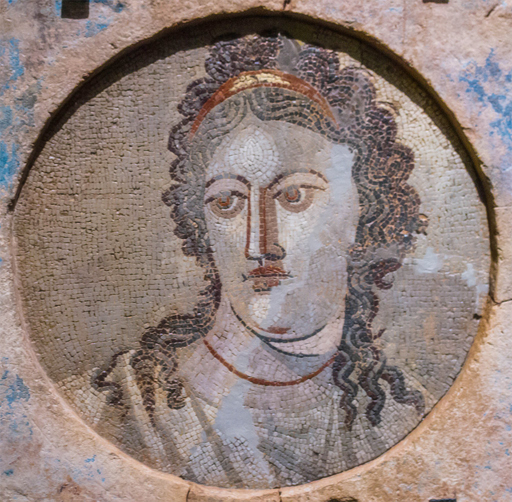Mnemosyne: The Goddess of Memory and Mother of the Muses
Mnemosyne: The Goddess of Memory and Mother of the Muses
In Greek mythology, Mnemosyne was the goddess of memory and mother of the Muses, who were the nine goddesses of the arts and sciences. Mnemosyne was considered one of the Titans, the children of Uranus and Gaia who ruled the world before the Olympian gods came into power.
 |
| @wikipedia.org/wiki/Mnemosyne |
The Origin of Mnemosyne
According to Greek mythology, Mnemosyne was born from the union of Uranus, the sky god, and Gaia, the earth goddess. She was one of the twelve Titans, who ruled the world until they were overthrown by the Olympian gods led by Zeus.
Mnemosyne was known for her exceptional memory, and was said to be able to recall all things that had ever happened. She was often invoked by poets and musicians to help them remember their songs and stories, and was considered the patron of memory and remembrance.
The Mother of the Muses
Mnemosyne was also known for her role as the mother of the Muses, who were said to be born from her union with Zeus. The Muses were the goddesses of inspiration and creativity, and were associated with various arts and sciences, such as music, dance, poetry, and history.
According to legend, Mnemosyne had a brief love affair with Zeus, during which she gave birth to the nine Muses. Each of the Muses was said to be gifted in a particular art or science, and they were often depicted as a group of beautiful young women who inspired creativity and innovation in mortals.
The Legacy of Mnemosyne
Mnemosyne was a revered figure in ancient Greece, and her legacy can still be seen in modern culture. The concept of memory and remembrance, which was central to her mythology, has played a significant role in human history and culture.
In ancient Greece, poets and musicians would often invoke Mnemosyne to help them remember their stories and songs. Today, the word "mnemonic" is used to describe any device or technique used to improve memory, and the term "memory lane" is often used to refer to nostalgia and remembrance of the past.
The Muses, who were born from Mnemosyne, have also had a lasting impact on human culture. In art and literature, they have been portrayed as sources of inspiration and creativity, and their influence can be seen in works ranging from Shakespeare's plays to modern-day music and film.
Story
Mnemosyne was walking through the forest, enjoying the sounds of the birds and the rustling of the leaves under her feet. She came across a group of young girls who were playing and singing together, and she stopped to listen.
As she listened to their music, Mnemosyne felt a stirring within her heart. She realized that these girls were blessed with a rare gift, the ability to create and inspire others through their art.
Filled with inspiration, Mnemosyne decided to give them a special gift. She called upon the Muses, her daughters, and asked them to bless the girls with their creativity and inspiration.
The Muses agreed, and they appeared before the girls, each one bestowing upon them a unique gift. One gave them the gift of dance, another gave them the gift of song, and another gave them the gift of poetry.
The girls were overjoyed with their new abilities, and they thanked Mnemosyne and the Muses for their generosity. From that day on, they used their gifts to inspire others and create beauty in the world.
Mnemosyne smiled as she watched the girls dance and sing and create. She knew that her gift would continue to inspire them for years to come, and that their art would touch the hearts of countless people.
Mnemosyne's all children
Mnemosyne, the Greek goddess of memory, was the mother of the Muses, who were the nine goddesses of art and science. Her children were:
- Calliope - Muse of epic poetry
- Clio - Muse of history
- Erato - Muse of love poetry
- Euterpe - Muse of music
- Melpomene - Muse of tragedy
- Polyhymnia - Muse of sacred poetry
- Terpsichore - Muse of dance
- Thalia - Muse of comedy
- Urania - Muse of astronomy and cosmology
All nine Muses were considered the embodiment of creativity and inspiration, and were widely worshipped in ancient Greece as patrons of the arts and sciences. They were said to reside on Mount Helicon, where they would inspire mortals to create and innovate in their respective fields.
Conclusion
Mnemosyne, the goddess of memory and mother of the Muses, was a revered figure in Greek mythology. Her exceptional memory and role as the mother of the Muses made her a symbol of creativity, inspiration, and remembrance. Her legacy can still be seen in modern culture, where the concepts of memory and inspiration continue to play an important role in human history and artistic expression.










Comments
Post a Comment